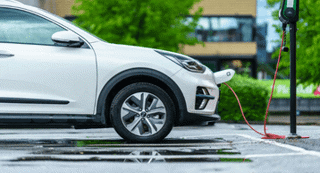In fleets of conventional diesel or petrol-powered vehicles, telematics is used primarily as a vehicle tracking device. Because EVs have much more sophisticated vehicle management systems, fleet managers can use telematics to monitor additional elements like battery charge. Telemetry can also monitor battery performance down to individual cells, ensuring any potential issues are quickly identified and fixed. StormMQ technology developed for banks and telecoms companies is playing a key role in the world’s first telematics system for production electric vehicles (EVs).
StormMQ has been awarded the contract for Smith Electric Vehicles in both the UK and the USA.
Robin Mackie, chief technical officer of Smith Electric Vehicles US Corporation, said: “The sheer volume of messages was a significant issue for us, along with the requirement to rapidly scale up, as we roll out more vehicles to customers around the world.
“To develop and run our own multi-server messaging queue in-house would have been extremely expensive - and we would still need to expand it in subsequent years, as our business is growing very quickly.
“We estimate that StormMQ has cost us around a tenth of any comparable system we looked at and delivers us a fixed monthly cost per vehicle which decreases as our fleet grows.
“As a pioneer in our respective field, it’s rare that you see another service that is so revolutionary yet simple; that can help us deliver a major benefit to our clients; and that would have either have been almost impossible to achieve any other way.”
Smith Telemetry collates and interprets more than 1,800 data sets from each EV’s drive line, controller and battery management system, along with a GPS tracker. This allows fleets to maximise the use of their EVs and makes the vehicles more accommodating for unscheduled, additional trips.
Alan Malby, Powertrain manager at Smith Electric, said: “StormMQ was the only platform that met our requirements and more importantly, we could evaluate it and deploy extremely quickly.
“Even we were staggered by the sheer volume of messaging that would be generated by the vehicles. We chose StormMQ because in extensive tests we proved that it’s capable of handling these huge volumes and is easy to scale."





















Login to comment
Comments
No comments have been made yet.